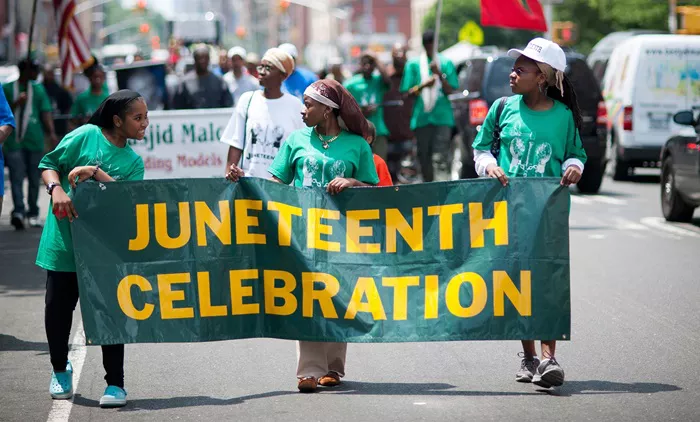Juneteenth celebrations across the United States have been significantly scaled back this year due to funding shortfalls. Many companies and municipalities are reconsidering their support for diversity, equity, and inclusion (DEI) initiatives, which has affected the budgets of parades, festivals, and other events leading up to Thursday’s federal holiday commemorating the end of slavery in the country.
The withdrawal of federal grants and a shift away from so-called brand activism have hit many Juneteenth events hard. This trend coincides with a broader pullback from LGBTQ Pride celebrations by some companies and efforts by former President Donald Trump to dismantle DEI programs within the federal government.
In Denver, more than a dozen businesses withdrew their support from the Juneteenth Music Festival, one of the city’s largest events for the holiday. Norman Harris, executive director of the JMF Corporation that organizes the festival, said several sponsors informed them they could no longer provide financial backing. Because of this, the festival was cut from two days to one and now relies heavily on donations from individuals and foundations to stay afloat.
Harris acknowledged the challenges but expressed gratitude for the community support that emerged once it became clear the celebration was at risk. The festival takes place in Denver’s historic Five Points neighborhood, an area with deep ties to the city’s Black community.
Juneteenth marks the day, June 19, 1865, when the last enslaved people in Texas were informed they were free, more than two years after President Abraham Lincoln issued the Emancipation Proclamation. The day has long been celebrated by Black Americans but became a federal holiday in 2021, gaining wider national recognition.
After the murder of George Floyd in 2020, many companies adopted more inclusive branding and supported social justice causes. However, this momentum has slowed. Some businesses faced backlash from conservative critics, and others questioned the financial benefits of such efforts, said Dionne Nickerson, a marketing professor at Emory University. Economic uncertainty has also forced some companies to reduce or withdraw support, according to Sonya Grier, a marketing expert at American University.
The pullback is not limited to the private sector. Several state and local governments have reduced or canceled their Juneteenth events due to budget constraints or political decisions. West Virginia’s governor’s office announced it will not sponsor any Juneteenth activities this year for the first time since 2017, citing a budget deficit. Governor Patrick Morrisey, a Republican, recently signed legislation ending all state diversity programs.
In Scottsdale, Arizona, the city council disbanded its DEI office earlier this year, leading to the cancellation of the city’s annual Juneteenth festival. Colorado Springs event organizers had to relocate their celebration after losing sponsors and city funding cuts. Jennifer Smith, a planner for the Southern Colorado Juneteenth Festival, said the number of sponsors dropped from dozens to about five, with companies explaining that DEI budget cuts forced their decisions.
Safety concerns have also influenced event cancellations. Organizers in Bend, Oregon, cited an “increasingly volatile political climate” when announcing the cancellation of their Juneteenth celebration.
Many local organizations have also faced cuts in federal funding. The National Endowment for the Arts (NEA) rescinded numerous grants in May, including a \$25,000 grant to the Cooper Family Foundation, which organizes one of the largest Juneteenth celebrations in San Diego. According to Maliya Jones of the foundation, the NEA said the event no longer aligned with the agency’s priorities.
The grant had helped cover costs for arts and dance performers. Despite the setback, the Cooper family plans to hold the event this year, with family members sharing the financial burden. Marla Cooper, who leads the foundation, said, “That’s \$25,000 we have to figure out how we’re going to pay for. We will always have Juneteenth. And we will work it out.”
As companies and governments pull back support, many communities are left scrambling to keep Juneteenth celebrations alive. The holiday continues to hold deep significance, but its observance faces new challenges amid changing political and economic landscapes.


